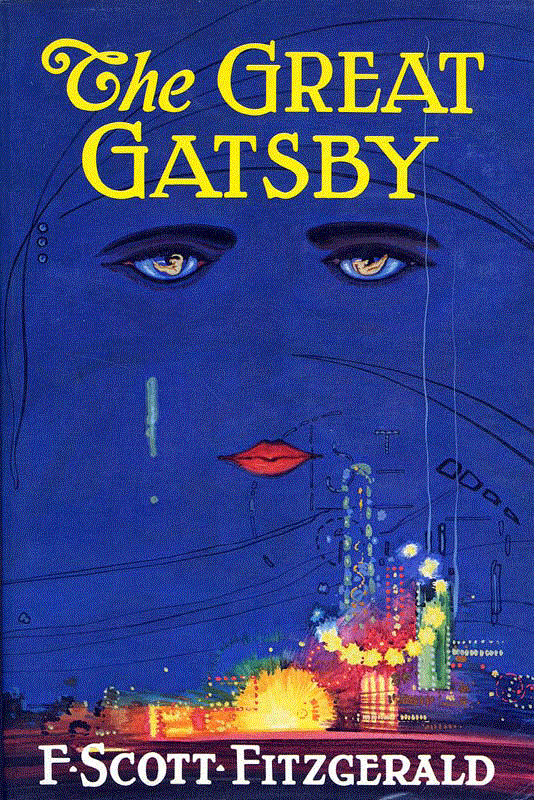 1.Would a Great American Novel by any other name be as sweet? Based on the other titles F. Scott Fitzgerald considered for Gatsby, I’d have to say no. At one time or another, all of these were in consideration: Among Ash-Heaps and Millionaires; Trimalchio; Trimalchio in West Egg; On the Road to West Egg; Under the Red, White, and Blue; Gold-Hatted Gatsby and The High-Bouncing Lover.
1.Would a Great American Novel by any other name be as sweet? Based on the other titles F. Scott Fitzgerald considered for Gatsby, I’d have to say no. At one time or another, all of these were in consideration: Among Ash-Heaps and Millionaires; Trimalchio; Trimalchio in West Egg; On the Road to West Egg; Under the Red, White, and Blue; Gold-Hatted Gatsby and The High-Bouncing Lover.
2. Fitzgerald was quite close to choosing one of the Trimalchio titles until someone persuaded him that the reference was too obscure. The original Trimalchio was a character in a first century work of fiction called Satyricon. The story had other famous fans, too; you can find mentions of Trimalchio in Les Miserables, Pompeii, and works by H.P. Lovecraft, Henry Miller and Octavio Paz, among others.
3. The Great Gatsby was partly inspired by a French novel called Le Grand Meaulnes, written in 1913. It has since been translated into English with the titles The Wanderer and The Lost Estate.
4. The famous cover of the book was designed by Francis Cugat, who later went on to become a designer for actor/director/producer Douglas Fairbanks. Fitzgerald so loved Cugat’s art that he rewrote parts of the book to better incorporate it.
5. The poet who “wrote” the novel’s epigraph never actually existed. He was a character in Fitzgerald’s previous book, This Side of Paradise. Fitzgerald also occasionally used it as his pen name. Here’s the epigraph:
“Then wear the gold hat, if that will move her;
If you can bounce high, bounce for her too,
Till she cry, “Lover, gold-hatted, high-bouncing lover,
I must have you!”
6. At the time of its publication in 1925, the novel cost just $2.
7. Unlike Fitzgerald’s previous two novels, Gatsby was not a commercial success. It sold just 20,000 copies in its entire first year of publication.
8.Fitzgerald was convinced that the reason the book wasn’t a rousing success was because Gatsby didn’t have a single admirable female character—and, at the time, the majority of people reading novels were women. He also thought that the title, which was only “fair,” resulted in poor sales.
9.Gatsby wasn’t a critical success with everyone, either. Here’s a few of the not-so-rave reviews:
“Why [Fitzgerald] should be called an author, or why any of us should behave as if he were, has never been satisfactorily explained to me.” —The Brooklyn Daily Eagle
“We are quite convinced after reading The Great Gatsby that Mr. Fitzgerald is not one of the great writers of to-day.” —The New York Evening World
“Scott Fitzgerald’s new novel, The Great Gatsby, is in form no more than a glorified anecdote, and not too probable at that.” —The Baltimore Evening Sun
 Blog EBE English Book Education
Blog EBE English Book Education



